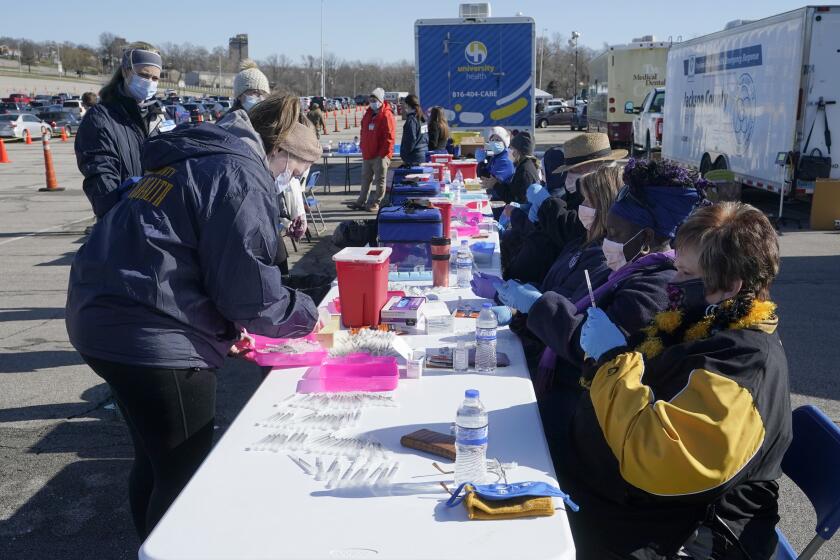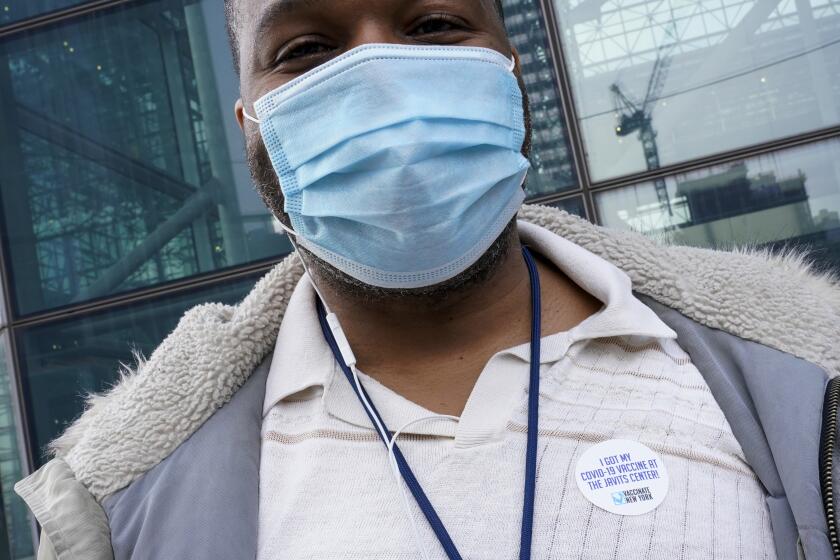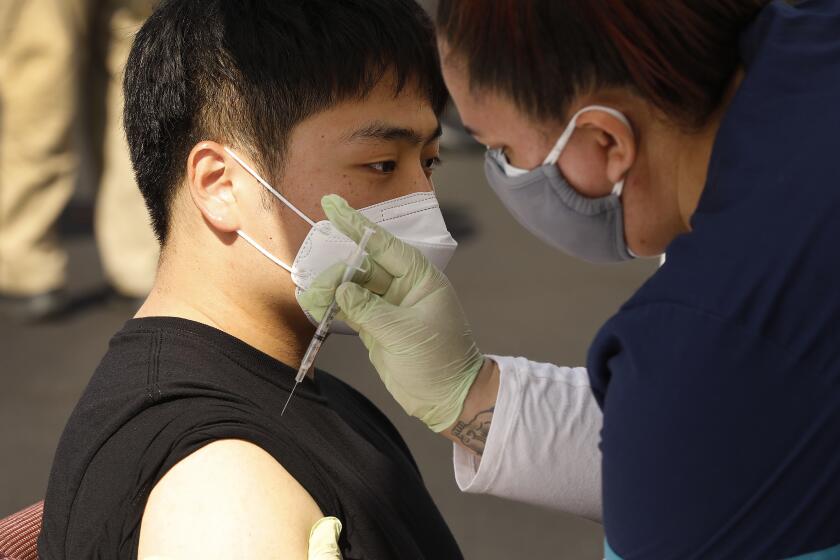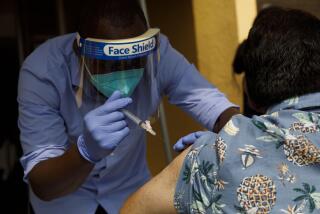Free rides, beer and savings bonds: COVID-19 vaccinators get creative
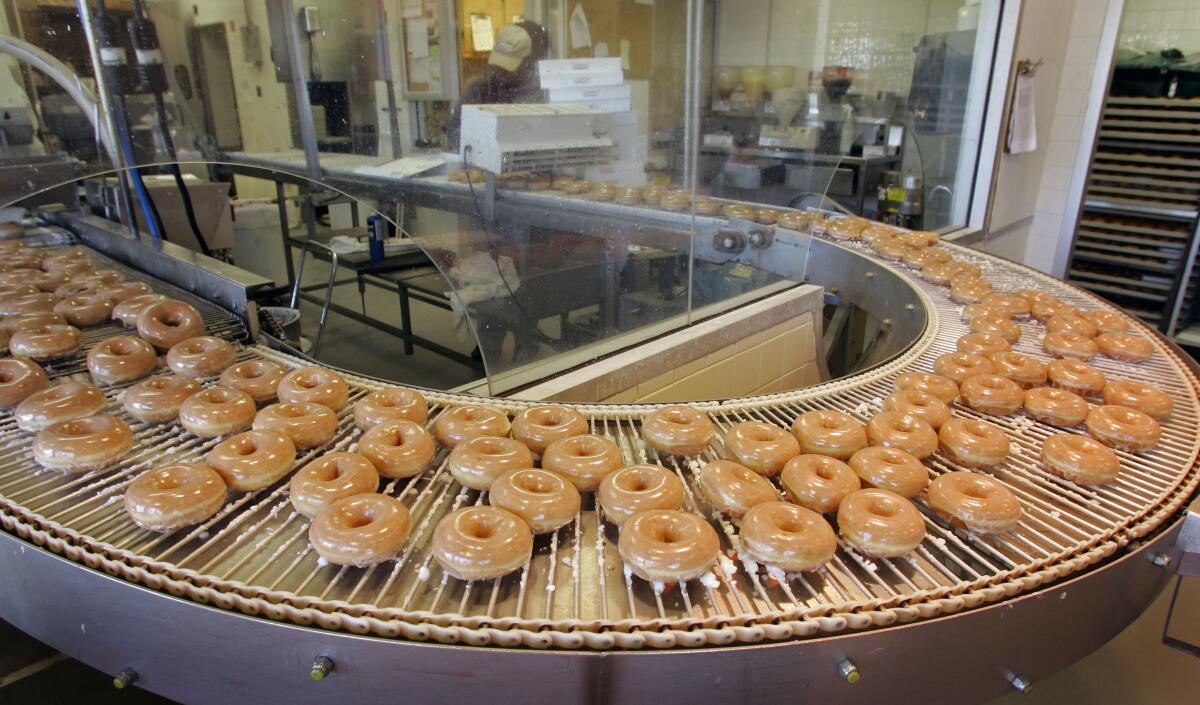
Free beer, pot and doughnuts. Savings bonds. A chance to win an all-terrain vehicle. Places around the U.S. are offering incentives to try to energize the nation’s slowing vaccination drive and get Americans to roll up their sleeves.
These relatively small corporate promotion efforts have been accompanied by more serious and far-reaching attempts by officials in cities such as Detroit, where they’re offering $50 to people who give others a ride to vaccination sites.
Public health officials say the efforts are crucial to reach people who haven’t been vaccinated yet, whether because they are hesitant or because they have had trouble making an appointment or getting to a vaccination site.
“This is the way we put this pandemic in the rearview mirror and move on with our lives,” said Dr. Steven Stack, Kentucky’s public health commissioner.
Demand for vaccines has started to fall around the country — something public health officials had anticipated would happen once the most vulnerable and most eager to get vaccinated had the opportunity to do so. Now that most older Americans are fully vaccinated, the effort is moving into a new phase.
“This will be much more of an intense ground game where we have to focus on smaller events, more tailored to address the needs and concerns of focused communities who have different sensitivities and different needs,” Stack said.
In the rugged timberland of northeastern Washington state, where demand has dropped precipitously, Matt Schanz, administrator of the Northeast Tri County Health District, is at a loss for what to try next.
Seventy-six percent of residents remain unvaccinated in Pend Oreille County, along with 78% in Ferry County and 80% in Stevens County. (The statewide average for Washington is 59%.) On Wednesday, only 35 people in all three counties booked a first dose through the health agency, down from a peak of 500 daily appointments a few weeks ago.
Demand for the COVID-19 vaccine has fallen off around the U.S. to the point where some states and counties are turning down new shipments.
Schanz ticks off the efforts made so far to encourage people to sign up for the shots: newspaper ads, signs and mailers sent with utility bills; outreach to church pastors, Republican elected officials, employers in the lumber industry and an aluminum boat manufacturer; TV and radio interviews; a call center and online scheduling. They’ve even set up drive-through vaccination sites at fairgrounds and fire stations.
“Have we reached that point of saturation?” Schanz asked. “How many people do we have who are going to be the hard nos, and how many are the hesitaters and the wait-and-see folks?”
Uncertainty about the vaccine is the biggest barrier, Schanz said: “People say, ‘Geez, I don’t want to be a government experiment.’”
Now COVID-19 cases are starting to climb again, and Schanz wonders if it will take people falling seriously ill to revive interest in vaccines.
“It’s a ‘here we go again’ kind of feeling,” he said of the case numbers. “Vaccines were our hope of breaking that cycle.”
U.S. health officials see two kinds of people: Those who are vaccinated and those who aren’t. They’re trying to get unvaccinated Americans to switch sides.
Several companies are giving employees paid time off to get vaccinated.
In Houston, 31-year-old Elissa Hanc works for one of those companies, 3 Men Movers.
“It made getting the vaccine far more accessible,” Hanc said. “It wasn’t necessary to make a choice between work and protecting myself, my family and my community.”
Her employer started offering the benefit before President Biden announced a tax credit for small businesses to provide paid time off for those getting vaccinated or recovering from side effects.
Hanc got the one-shot Johnson & Johnson vaccine on April 6. She felt hot and achy the next day, and her supervisor, who noticed during a Zoom call that Hanc didn’t look her best, told her to take the day off. Hanc appreciated that too.
“I have a few friends who work [at businesses] where management is not making it a priority to get the vaccine,” Hanc said. “They’ve let me know in no uncertain terms how lucky I am to work where I do.”
With so many Americans becoming immunized, it’s natural to look ahead and wonder how long this protection will last. The answer: No one knows.
Dr. Eric Topol, head of the Scripps Research Translational Institute in La Jolla, said employers should give paid time off and that other incentives are needed. He pointed to West Virginia, which is giving $100 savings bonds to young adults who get their shot.
“We also need health systems and universities to mandate vaccination — that no one can be employed or on campus/medical facilities without having been vaccinated,” Topol said in an email.
He also said the nation needs to mount a “counteroffensive” against anti-vaccination websites and activists.
Other companies are getting into the spirit with marketing pitches.
Krispy Kreme began offering a free doughnut a day to anyone showing proof of having been vaccinated. In Cleveland, a movie theater is giving away free popcorn through the end of this month.
Several marijuana dispensaries around the country are giving out cannabis treats or free rolled joints. On April 20, marijuana advocates offered “joints for jabs” to encourage people to get vaccinated in New York City and Washington.
Some breweries around the country are offering “shots and a chaser.”
In Alaska, which traditionally has low vaccine confidence, the Norton Sound Health Corp., with a hospital in Nome and 15 clinics across western Alaska, has given away prizes, including airline tickets, money toward the purchase of an all-terrain vehicle, and $500 for groceries or fuel.
More to Read
Sign up for Essential California
The most important California stories and recommendations in your inbox every morning.
You may occasionally receive promotional content from the Los Angeles Times.
